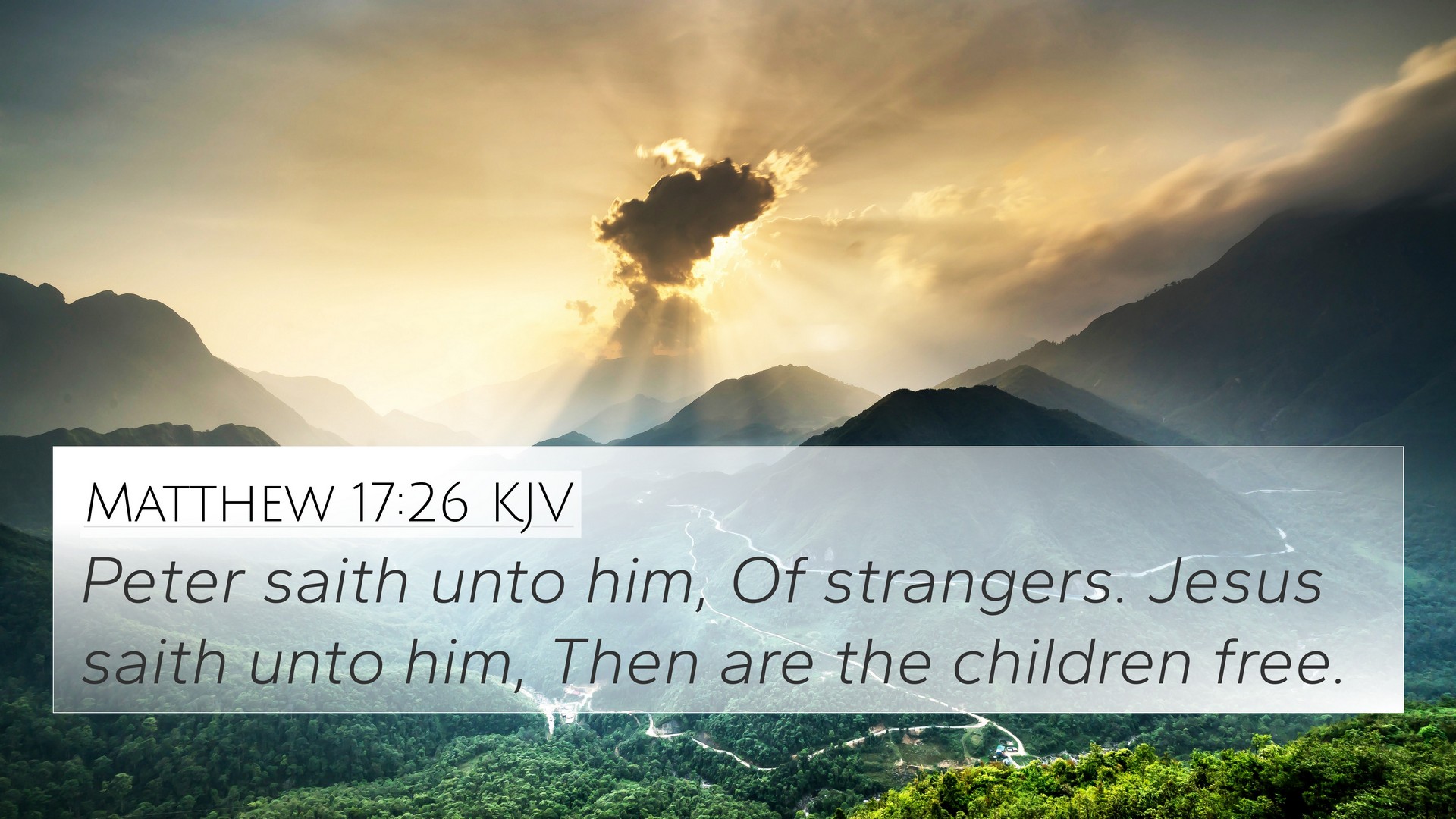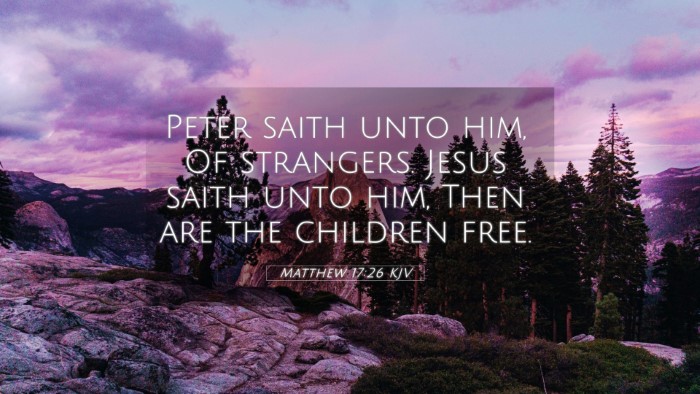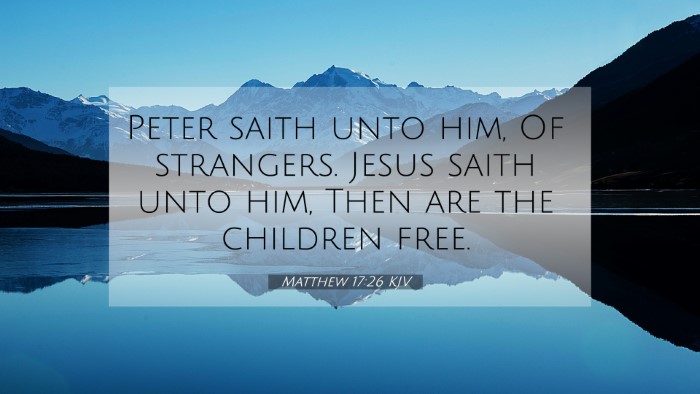Understanding Matthew 17:26
Matthew 17:26 - “Peter saith unto him, Of strangers? Jesus saith unto him, Then are the children free.” This verse takes place in a conversation about the temple tax and illustrates an important teaching of Jesus regarding freedom and obligation.
Verse Meaning Summary
This verse encapsulates a dialogue between Peter and Jesus concerning the levying of the temple tax, which was a common practice in Jewish society. Matthew Henry, in his commentary, points out that Jesus uses this moment to teach about the true nature of citizenship in the kingdom of God.
According to Albert Barnes, the term "children" refers to the followers of Jesus who, as sons of the King, are not obliged to pay tribute. This emphasizes the grace and freedom afforded to believers under the new covenant.
Adam Clarke highlights that this exchange illustrates the idea that God's children are exempt from worldly tributes and obligations, as their citizenship is in heaven (Philippians 3:20). It synthesizes a critical theme throughout the Gospel of Matthew: the distinction between earthly and heavenly benefits and responsibilities.
Key Themes
- Freedom from earthly obligations: Jesus affirms that as children of God, believers are free from traditional duties that bind others.
- Identity of believers: Emphasizes who we are as children of God and our relationship with Him.
- Discipleship and its implications: Highlights that those who follow Christ live under different principles than the world.
Cross-References
The understanding of Matthew 17:26 can be enriched by cross-referencing with the following scriptures:
- Romans 8:17 - “And if children, then heirs; heirs of God, and joint-heirs with Christ;...”
- Philippians 3:20 - “For our conversation is in heaven;...”
- 1 Peter 2:9 - “But ye are a chosen generation, a royal priesthood, an holy nation, a peculiar people;...”
- John 8:36 - “If the Son therefore shall make you free, ye shall be free indeed.”
- Galatians 4:7 - “Wherefore thou art no more a servant, but a son; and if a son, then an heir of God through Christ.”
- Matthew 22:21 - “Render therefore unto Caesar the things which are Caesar’s; and unto God the things that are God’s.”
- Hebrews 12:22 - “But ye are come unto mount Sion, and unto the city of the living God, the heavenly Jerusalem...”
- Luke 10:20 - “Notwithstanding in this rejoice not, that the spirits are subject unto you; but rather rejoice, because your names are written in heaven.”
Comparative Analysis
By comparing Matthew 17:26 with the above verses, we can grasp the broader theological implications of being part of God’s household. It is imperative to understand how the concepts of freedom, citizenship, and identity interrelate throughout the New Testament.
Use of Bible Cross-References
For deeper study, tools for Bible cross-referencing such as concordances and cross-reference guides can help strengthen one’s understanding of how different passages intersect.
Final Thoughts
The dialogue encapsulated in Matthew 17:26 serves as a potent reminder of the privileges and responsibilities of being a child of God. Believers are called to live in the freedom bestowed upon them, recognizing their identity in Christ and the expectations that come with it.
Exploring Further
Those interested in detailed themes and cross-references can explore various Bible study methods. This includes identifying connections between the Old and New Testament, examining planets of imagery used in scriptures, and recognizing their overarching significance within the biblical narrative.


